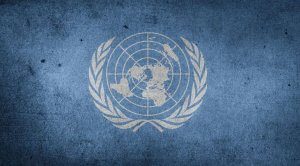 Non-democratic states who are neither Arab nor Muslim, but who want to make sure the UN busies itself with anyone but them, are quick to join Arab/Muslim states in elaborate, prolonged, exaggerated criticism of Israel, write Sarah Teich and David Matas in iPolitics. Below is an excerpt from the article, which can be read in full here.
Non-democratic states who are neither Arab nor Muslim, but who want to make sure the UN busies itself with anyone but them, are quick to join Arab/Muslim states in elaborate, prolonged, exaggerated criticism of Israel, write Sarah Teich and David Matas in iPolitics. Below is an excerpt from the article, which can be read in full here.
By Sarah Teich and David Matas, February 18, 2021
By bringing together all nations — democratic and non-democratic alike — the United Nations provides opportunities for both: For states that respect human rights, the UN can provide a forum for promoting that respect, while for states that violate them, the UN becomes a forum in which to defend, divert, and obfuscate.
One diversion tactic the latter use is to point human-rights standards elsewhere. They might use the vocabulary of human rights, but these words mean what they want them to mean.
The 2001 World Conference against Racism is a prime example. By singling out Israel, the concluding document was itself racist. It called the Jews of Israel foreigners, even though Jews have lived continuously in Israel since prehistoric times.
The document further referred to their presence in the region as colonial occupation, even though colonization of the area had ended with the termination of the British mandate in 1948. The document blamed the plight of the Palestinians on Israel alone, as if all the terrorist organizations targeting the Jews of Israel, not least the Palestinian governing authority, had nothing to do with it.
While the strategies employed by rights-violating states at the UN to smother criticism are various, a notable component is an inordinate focus on Israel. Israel is small and geopolitically insignificant. A raft of states in the Arab and Muslim world are opposed to its very existence. Non-democratic states who are neither Arab nor Muslim, but who want to make sure the UN busies itself with anyone but them, are quick to join Arab/Muslim states in elaborate, prolonged, exaggerated criticism of Israel.




